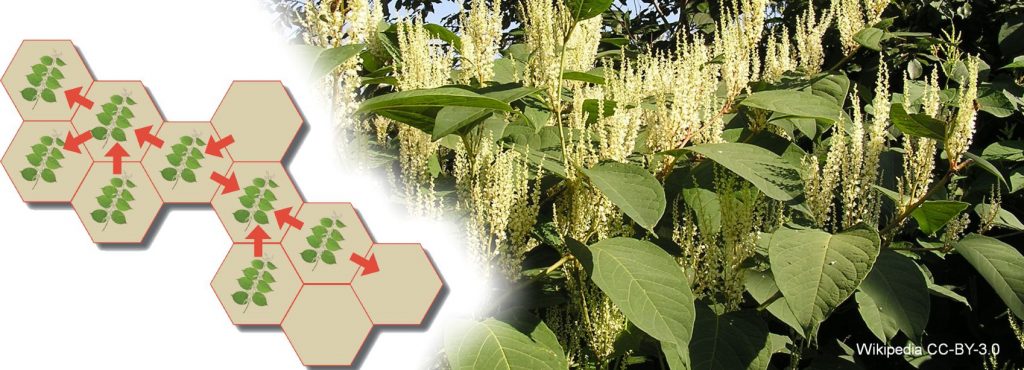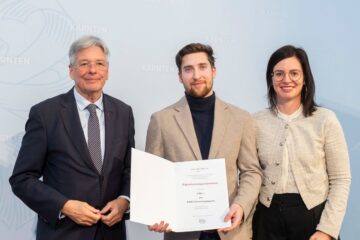
In October 2017 we took the first steps in the research project “Game of Clones – Students model the dispersal and fighting of the knotweed”, a project funded by the research program Sparkling Science of the Federal Ministry of Science, Research and Economy. The Game of Clones project should approach the serious topic of the rapid and aggressive clonal dispersal of the Japanese knotweed (Fallopia japonica) in a playful manner. Scientists from different departments and young explorers from a local school (BORG Spittal) will conduct research and experiments to investigate the behavior of the plant. We will use methods such as genetic sequencing of marker genes to differentiate between the Fallopia hybrids (DNA-Barcoding) or so-called rhizoboxes to study the growth of the rhizomes. With the results gathered through these efforts, we expect to model the complex spreading behavior of the plant under different circumstances and create a strategy computer game called “Game of Clones”. By means of this simulation, we will be able to test the effectiveness of different control measures based on many different variables.
‘Game of Clones’ is a collaboration of E.C.O. Institut für Ökologie, the Institute of Networked and Embedded Systems (Alpen-Adria-Universität Klagenfurt), the HBLFA Raumberg Gumpenstein and the Landesmuseum Kärnten.
Contacts:
 Project coordination:
Project coordination:
DI Dr. Christina Pichler-Koban
E.C.O. Institute of Ecology
pichler-koban@e-c-o.at
Modeling, simulation, and game design:
Univ.-Prof. Dr. Wilfried Elmenreich
Institute of Networked and Embedded Systems, AAU
wilfried.elmenreich@aau.at




